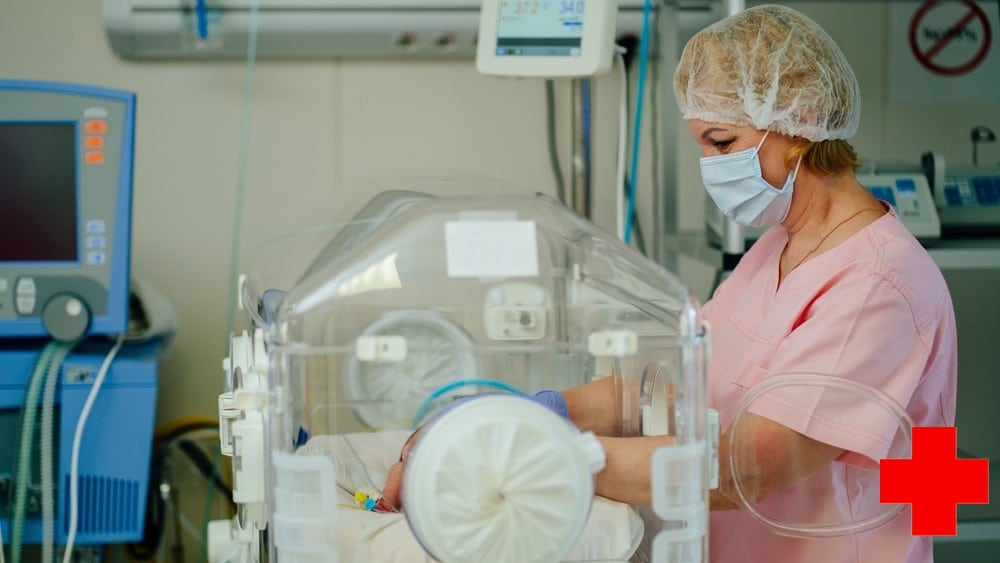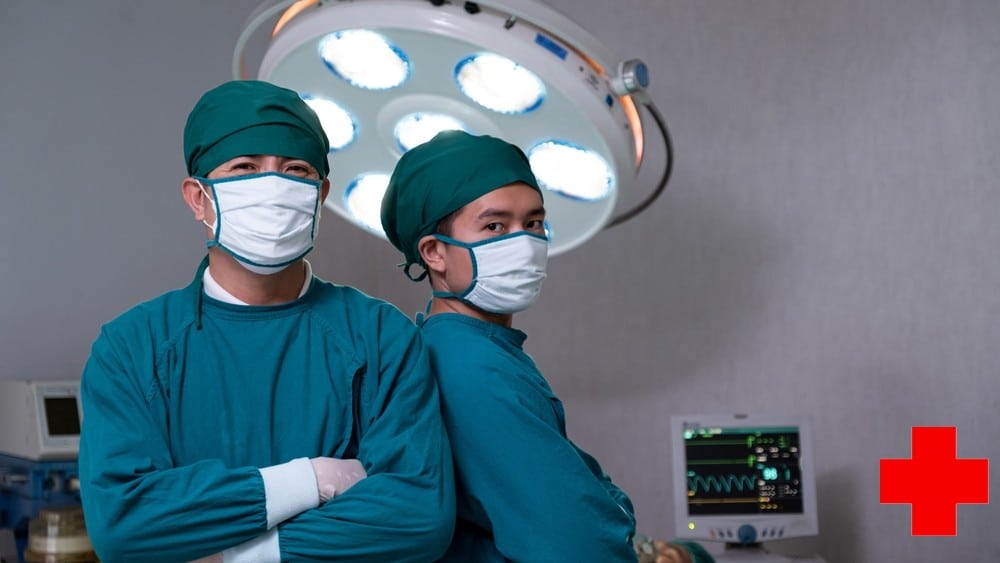Hello all and welcome to Nurse Code!
Today we discuss the OCN Certification extensively and summarize how to become an Oncology Certified Nurse.
We promise that at the end of this read you will understand how to get OCN certification, how to go about your OCN Exams, OCN review, OCN test, and how important these certifications are to your nursing practice.
We covered in depth:
- An overview of OCN Certification
- What is OCN certification?
- All it takes to earn OCN certification
- How to register for OCN certification
- The importance of Oncology training programs and Chemo certification for RN
Let’s dig in!
An Overview of OCN Certification

As an Oncology Nurse, dealing with cancer on a daily basis necessitates a combination of understanding and strength.
Cancer is an unsightly foe that is currently the world’s second-leading cause of mortality.
Despite efforts to improve patient outcomes through early detection, disease prevention, end-of-life care, healthcare interventions, and treatment advancements, Nurses continue to deal with the impacts of cancer on their patients’ quality of life as well as the psychological burden of both treatments and diagnosis.
Oncology patients, on the other hand, frequently struggle with redefining what it means to live a normal life while still struggling with physical pain and, in many cases, severe exhaustion.
Oncology Nurses have the honor of accompanying these patients through the physical and emotional challenges that come with cancer.
Oncology Nurses can aid patients with nausea and pain relief as well as implement palliative care during radiation therapy, handle oncologic emergencies, and offer optimal treatment plans for them.
Apart from these, they also offer psychosocial dimensions of care to cancer patients.
Today’s oncology industry is very different from what it was in the early days of cancer treatment, with better professional performance, great scientific basis and symptom management, a lot more treatment options, better pain control, and fewer side effects.
Many new cures are on the horizon, and science is dynamic and always evolving.
Many people are transitioning from being cancer patients to surviving the cancer battle.
In other words, there is frequently hope for living and healing from sickness.
Oncology Nurses play an important role throughout the cancer treatment process.
Before providing biotherapies and chemotherapies, all Oncology Nurses and Nurse Practitioners must receive a chemo-bio certification.
The Oncology Nursing Certification Corporation and Oncology Nursing Society (ONS) offer an Oncology Nurse certification for experienced RNs.
This credential is highly sought after by employers for both outpatient and inpatient Oncology Nurses.
To become an RN OCN and specialize in OCN nursing, you’ll need either an ADN or a BSN as the foundation for our OCN degree, go through the necessary Oncology Nurse certification requirements, and then take and pass the needed Oncology Exam.
Are you ready to experience the sense of personal achievement that comes with certification and also boost your professional credibility?

The eligibility criteria, the right way to prepare for oncologist certified nursing tests, and ONCC and ONS certification requirements, are revealed in this guide.
What is Oncology Nurse Certification?

While RN licensing provides the necessary entry-level knowledge to begin working in the healthcare industry, it does not always reflect your commitment to increasing your knowledge and skills and continuing your education to your patients or employers.
OCN certification is a credential for Nurses who work in the field of oncology.
This credential indicates that a Nurse can provide cancer patients with counseling and care, as well as aid with radiation therapy, administer medication, and manage patient records.
Actually, the OCN certification procedure is voluntary, but it assures your patients and employers that you are committed to learning and maintaining oncology nursing specialist knowledge.
OCN certification also benefits your patients while also rewarding you as an RN.
While certification is optional, it may be required for advancement into higher-level positions within your firm and can assist open new professional doors, including potential pay raises.
Oncology Certified Nurse Specialty Certifications

There are specialist certificates available if you want to focus on one component of cancer nursing:
Certified Breast Care Nurse (CBCN Certification): This designation is given to Nurses who have worked with breast cancer patients.
CPHON Certification (Certified Pediatric Hematology-Oncology Nurse): This certification is for Nurses who have worked with children with blood malignancies.
Certified Pediatric Oncology Nurse (CPON Certification): This certification is for Nurses who have worked with children who have cancer.
Advanced Oncology Certified Nurse (AOCN Certification): This certification is for Nurses who have extensive experience and have completed a significant number of continuing education courses.
BMTCN Certification (Blood and Marrow Transplant Certified Nurse): For Nurses who have worked with cancer patients who needed blood and marrow transplants.
OCN Requirements

The first step toward earning your OCN certification is to have a complete understanding of the structure and content of the OCN test.
Taking care of yourself physically and getting enough sleep before the exam will help you succeed on exam day.
However, the most effective way to ensure that you pass the OCN exam is to study with the greatest test preparation materials available.
Eligibility Standards for Certification
At the time of application and examination, the following eligibility benchmarks must be met.
At the time of examination and application, you must have a current, unencumbered, and active Registered Nurse license in the United States.
Within the forty-eight months preceding to application, at least twenty-four months of practical experience as a Registered Nurse, and
More than 1,999 hours of oncology nursing practice for adults in the last forty-eight months is required.
Clinical experience or practice, education, research in health promotion, nursing administration, and consultation are all examples of the required nursing practice.
Also within the last thirty-six months preceding application, an RN must have completed at least 10-11 contact hours of an educational elective in oncology nursing or cancer nursing continuing education.

An appropriate approver or accreditation provider of CNE (continuing nursing education) or nursing ongoing professional development must have offered or formally approved the contact hours.
CME (Continuing medical education) in oncology may account for up to five of the ten needed contact hours in oncology.
OCN Certification Exam

The OCN test consists of multiple-choice questions.
It has 165 multiple choice questions, each of which is either an incomplete statement or a question with four completions or responses.
Out of the 165 questions, 145 will be used to calculate your final score, while the remaining 20 will be used as pretest items.
The OCN exam is given one hundred and eighty minutes to test takers to complete.
The pass percentage for the OCN is between 70% and 80%.
The OCN exam is graded on a scale rather than a percentage scale.
The OCN exam requires a scaled score of 55 to pass.
On the OCN exam, there are 165 multiple-choice questions organized into six content categories, everyone with a variable weighting.
The exam’s content and structure will be as follows:
- The first component is 19 percent weighted and covers the continuum of care
Screening, illness prevention, health promotion, early detection, rehabilitation, epidemiology, survivorship, advanced care planning, treatment considerations, and end-of-life care will all be included in the questions.
- The second component is 17 percent weighted and covers oncology nursing practice, including questions about immunology, carcinogenesis, and clinical trials, as well as additional cancer classification, considerations, and prognosis; scope, standards, professional performance, legal concerns, and quality of practice
- The third component, which is weighted at 19 percent, is about therapy techniques
Surgery, radiation and chemotherapy, blood and marrow transplants, immunotherapy and biotherapy, and vascular access devices (VADs) are all included in the questions.
- Questions about etiology and symptom management, surgical and anatomical abnormalities, palliative care, pharmacology and intervention, changes in system functioning (immune, respiratory, gastrointestinal, etc.), and other treatment modalities make up the fourth component, which is weighted at 23%
- Questions about oncology emergencies, such as SIADH, DIC, tumor lysis, sepsis, pneumonitis, allergy, spinal cord compression, and other illnesses and syndromes, make up the fifth component, which is weighted at 12%
- Religious and spiritual problems, body image difficulties, financial worries, coping methods and social interactions, learning styles and barriers, and support-related concerns are all covered in the sixth and final component of the OCN exam, which is weighted at 10%
OCN Practice Test

The OCN (Oncology Certified Nurse) exam, developed by the ONCC (Oncology Nursing Certification Corporation), is for Registered Nurses who want to demonstrate their comprehension of current practice and knowledge in oncology nursing and feel the personal satisfaction of attaining OCN certification.
Beyond the minimal abilities and knowledge required to become an RN, the OCN exam assesses your advanced skills and knowledge in oncology nursing.
To register for the OCN exam, go to ONCC.org and fill out the online application.
If you are found to be qualified for testing, you will get an Authorization to Test within a month of submitting your application.

After that, you will be given a test eligibility period within which you can schedule and take the test.
If you are an ONS/APHON member you will receive a discount, bringing the exam fee down to $296, the fee for ONS/APHON members who are 65 and older is $225.
The charge for nonmembers is $416, and the fee for nonmembers who are 65 and over is $315.
Additional reductions based on date and term can be found on the ONCC website.
Is OCN Certification Worth it?

Certification as an Oncology Nurse verifies that a Nurse has particular experience and knowledge in cancer care.
Certification matters to patients who want competent Nurses, businesses who want experienced and trained employees, and individual Nurses who wish to show their knowledge and grow their careers.
Patients Value Certification
Certification can provide patients peace of mind about the qualifications of their Nurses.
Nurses with more knowledge are better able to spot problems and take action.
In addition, the general public is becoming more aware of certification.
Nurses can be qualified in a particular field, according to nearly 8 out of 10 respondents polled.
Nurses Grow Through Certification
Nurses might gain professional and personal benefits from certification.
Certification is like a registered trademark that boosts their professional credibility, verifies their specialized knowledge, and contributes to feelings of personal accomplishment.
Certification is frequently essential for advancement up the clinical ladder.
Certified nurses may obtain incentives or pay raises in specific cases.
According to a 2020 salary survey, certified Nurses who are monetarily rewarded earn an average annual income of roughly $9,999 more than non-certified Nurses.
The importance of OCN Certification

Some employers require oncology certification in order to hire you.
There are, however, other reasons for Nurses to pursue certification.
Certification displays a high degree of expertise in the subject, which can lead to increased trust between the patients and the Nurse.
Certification can also assist Nurses to advance in their careers by demonstrating that they have extensive experience in the field of oncology.
Additionally, some firms may pay employees who have earned a certification a higher income.
Professional OCN Resources
Professional groups and other resources can keep you up to date on industry trends, help you grow your career by expanding your network of colleagues and improve your skills and expertise.
These kinds of resources might assist you to navigate your profession as you progress or alert you to fresh opportunities.

Check out the following professional resources:
- The Oncology Nursing Society is a professional networking group that hosts conferences and offers tools to help you advance your career
- The Oncology Nursing Podcast is a fortnightly podcast produced by the Oncology Nursing Society that features conversations with the nation’s best Oncology Nurses and specialists on a variety of issues connected to cancer treatment
- Clinical Journal of Oncology Nursing is a biweekly peer-reviewed journal that publishes timely studies in order to improve cancer patient care
- The International Society of Nurses in Cancer Care (ISNCC) is a global networking and leadership development organization that hosts conferences and provides education and training
Conclusion

In addition to helping you develop your abilities and reputation, a nursing certification can also help you increase your earning potential while also improving the level of patient care you can deliver to patients.
In the oncology nursing field, credentials can be even more important than usual because of the intricate nature of the work performed by Oncology Nurses.
Without a doubt, the OCN certification can be a great addition to your nursing resume; nevertheless, you may have doubts about the certification process as well as the value of certificates in general.
After you’ve read this guide and answered all of your questions, you can proceed to enroll for this certification.
FAQs

What is a Chemo Certified Nurse?
Chemotherapy certification for nursing is a subspecialty of oncology nursing that includes chemotherapy administration. Certified Chemotherapy Nurses are responsible for monitoring patients and administering necessary patient care to those who are receiving chemotherapy medicines as directed by their Physicians.
How Do I Become Chemo Certified?
You must pass the ONC (Oncology Certified Nurse) Nurse exam to become an Oncology Certified Nurse. A Bachelor of Science in Nursing (BSN) is the bare minimum requirement. Prior to applying for the exam, you must have at least twelve months of practical experience as a Registered Nurse (RN) and 1,000.1 hours of oncology nursing practice for adults.
How Hard is the OCN Certification?
The exam necessitates extensive preparation. It’s time-consuming and necessitates meticulous attention to detail as well as the recollection of clinical experiences gained over time. The OCN exam is difficult to pass, but with the correct study materials, passing on your first try is a distinct possibility.
How Long is the OCN Exam?
The certification exam is a 165 multiple-choice question test that lasts one hundred and eighty minutes and is based on the OCN Test Blueprint (Test Content Outline). In 2020, the Blueprint was produced based on the findings of a role delineation study of basic adult cancer nursing practice.
How Long Does it Take to Become OCN Certified?
After receiving a two-year or four-year nursing degree, the majority of applicants get accepted into oncology schools. Before becoming certified Oncology Nurses, students must complete three to five years of classroom education and clinical practice training after enrolling in an approved school program.
How Much is the OCN Exam?
If you are an ONS/APHON member you will receive a discount, bringing the exam fee down to $296, the fee for ONS/APHON members who are 65 and older is $225. The charge for nonmembers is $416, and the fee for nonmembers who are 65 and over is $315. Additional reductions based on date and term can be found on the ONCC.org website.
Is OCN a National Certification?
The Oncology Nursing Certification Commission (ONCC) is the leading supplier of nationally certified certification for Nurses working in oncology and associated specialties. The Oncology Nursing Certification Commission (ONCC) was established as a non-profit organization in 1984 and conducted the first Oncology Certified Nurse (OCN) examination in 1986.
How is OCN Certification Verification Carried Out?
The self-service certificate verification webpage or a written request can be used to receive verification. A Nurse’s current and Emeritus ONCC certification status can be verified online. The website has access to the names of Nurses who are currently ONCC qualified.
What Happens if You Fail OCN?
Candidates who fail an ONCC examination on their first attempt may seek a retest within 90 days. If you fail an ONCC examination on the second attempt, a retest can be done within 90 days. If you fail three times, you must wait one year before retaking it.
What Score Do You Need to Pass the Exam?
The number of right answers determines the passing mark for each ONCC exam. The number of accurate answers is scaled. A scaled score converts a raw score (number of correct answers) into another unit of measurement. All ONCC tests require a scaled score of 55 to pass.
What is OCN in Nursing?
The OCN certification is a credential for Nurses who work in the field of oncology. The OCN (Oncology Certified Nurse) credential recognizes Nurses who have demonstrated technical knowledge and expertise in the oncology nursing profession. They are equipped to provide competent care for affected adults along the cancer spectrum.
What Percentage to Pass OCN Certification?
The OCN exam is graded on a scale rather than a percentage scale. The OCN exam requires a scaled score of 55 to pass. The pass percentage for the OCN is between 70% and 80%.
What is ONS?
ONS is an acronym for the Oncology Nursing Society. The Oncology Nursing Society is a non-profit membership organization with over 34,999 members dedicated to advancing oncology nursing excellence and cancer care reform.
How Much Does it Cost to Join the Oncology Nursing Society?
A one-year subscription to the Oncology Nursing Forum costs $8.441, a one-year subscription to the Clinical Journal of Oncology Nursing costs $8.481, a one-year subscription to ONS Connect costs $3.981, and full access to www.ons.org costs $8.261 as part of your dues.
What Do Oncology Nurses Do?
Oncology Nurses administer, develop, and educate healthcare providers and patients about cancer therapies, especially when radiation, medical, cellular, and surgical alternatives for diagnosing, preventing, and treating cancer is involved.









